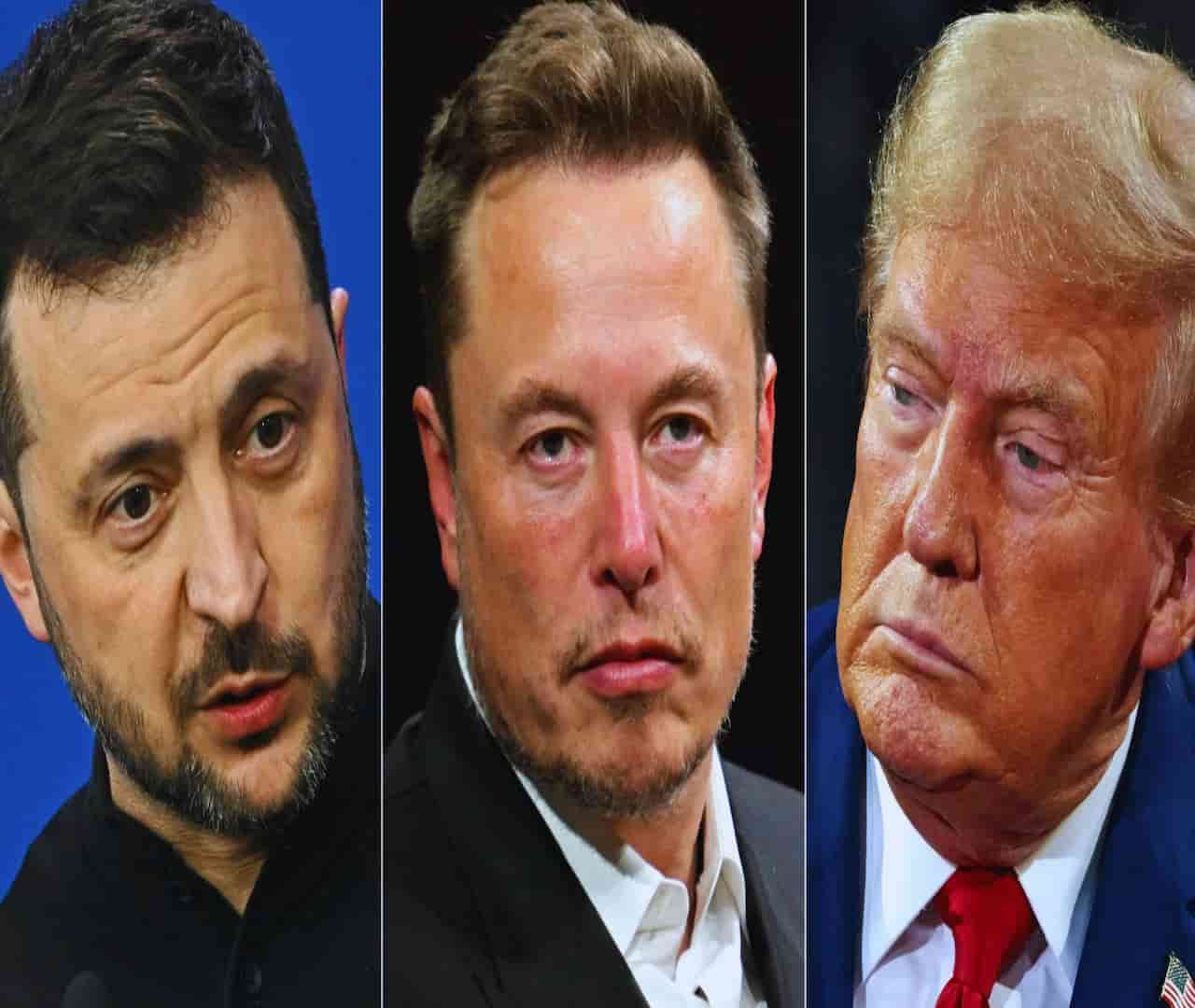Tech Titan Joins Presidential Politics: Musk’s Surprise Appearance on Trump-Zelensky Call Signals New Era
In a dramatic development that highlights shifting power dynamics in American politics, Elon Musk made an unexpected appearance during a crucial phone call between President-elect Donald Trump and Ukrainian President Volodymyr Zelensky on Wednesday. This revelation offers a glimpse into what could become a defining feature of Trump’s second administration.
The Unexpected Third Party
The 25-minute conversation took an unusual turn when Trump, speaking from Mar-a-Lago, handed the phone to Musk. The tech billionaire, whose companies SpaceX and Tesla have transformed industries, assured Zelensky that Ukraine would continue receiving support through Starlink satellite services. This satellite network has become vital for Ukraine’s military communications since Russia’s invasion.
A Complex Web of Relationships
Musk’s presence on the call raises important questions about his future role in American politics. The tech leader has already shown his support for Trump’s campaign through significant financial backing.
- His superPAC contributed over $118 million to Trump’s 2024 campaign.
- He’s positioned himself to lead efforts to reduce federal spending.
- His companies hold billions in government contracts.
Ukraine’s Cautious Optimism
Zelensky responded to the call in a measured yet positive manner. He posted on social media platform X: “Strong and unwavering U.S. leadership is vital for the world and for a just peace.” However, speaking later in Budapest, Zelensky admitted uncertainty about future actions, saying he “cannot yet know what his [Trump’s] actions will be.”
Starlink’s Strategic Importance
The satellite internet service has played a crucial role in Ukraine’s defense.
- It facilitates the transmission of drone feeds in real-time among military units.
- Maintains communication in combat-damaged areas
- Provides strategic advantages to Ukraine’s forces
However, this support hasn’t been without controversy. Past reports indicate Musk:
- Restricted access in Russian-occupied Crimea
- Had concerns about nuclear escalation
- Reportedly maintained contact with Russian officials
Looking Ahead: Key Questions
Several critical issues remain unresolved:
- How will Musk’s influence shape U.S. foreign policy?
- What role will he play in future peace negotiations?
- How will his business interests affect diplomatic decisions?
Security Concerns
National security experts have raised flags about:
- Musk’s reported communications with foreign leaders
- Potential access to sensitive government information
- His business interests and national security concerns overlap.
This unprecedented situation—where a private citizen with vast commercial interests joins high-level diplomatic communications—marks a significant shift in how American foreign policy might be conducted under Trump’s second term.
The Pentagon now funds Starlink operations in Ukraine, but questions persist about the service’s reliability and potential restrictions in strategic areas. As the world watches these developing relationships, the intersection of private enterprise, military support, and diplomatic relations continues to evolve in unexpected ways.
The Path Forward
As January 20th approaches, both allies and adversaries are closely watching these early signals from Trump’s transition team. The inclusion of Musk in such high-level diplomatic communications suggests a new era where tech leaders might play increasingly prominent roles in international relations.
For Ukraine, fighting a defensive war and dependent on Western support, these early interactions carry enormous weight. The immediate conversation seemed positive, but we cannot yet predict the long-term implications of this unusual three-way dynamic.
